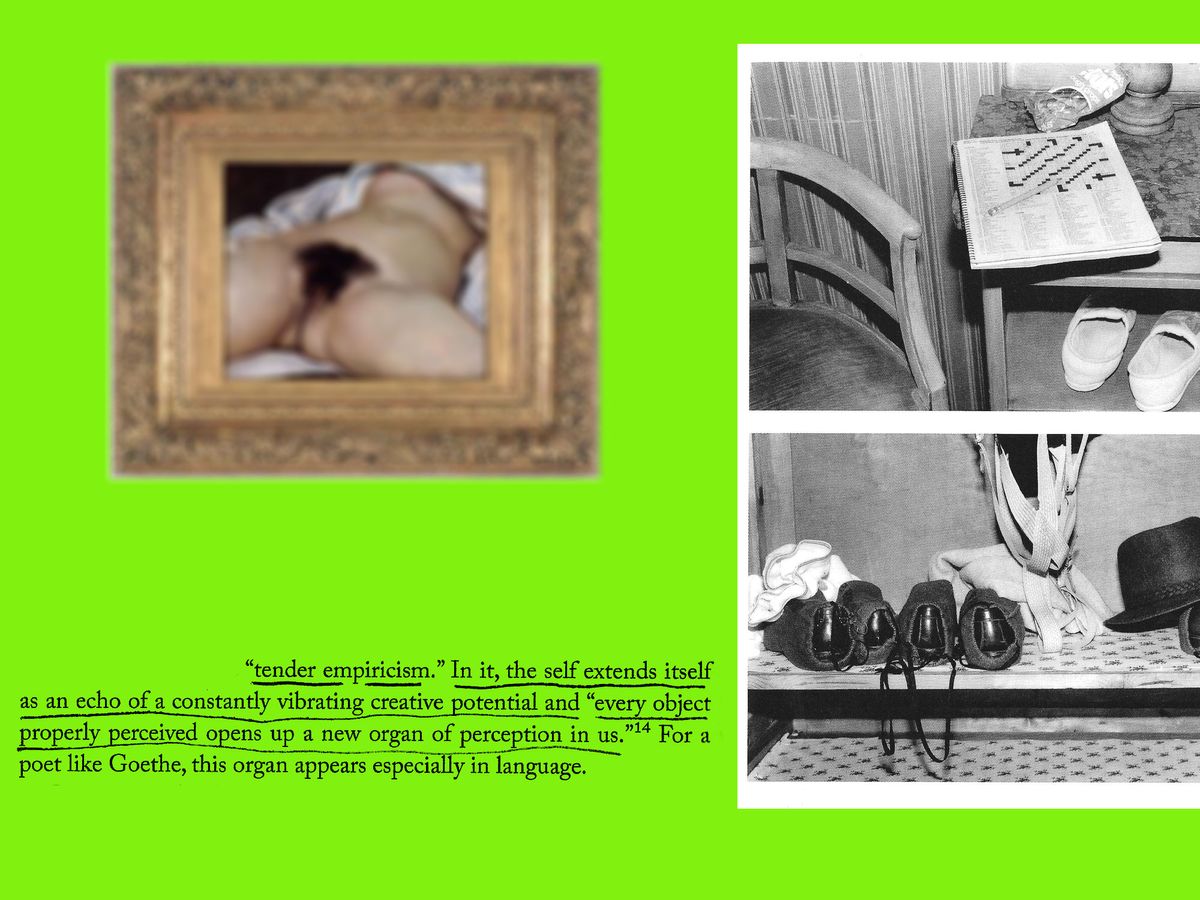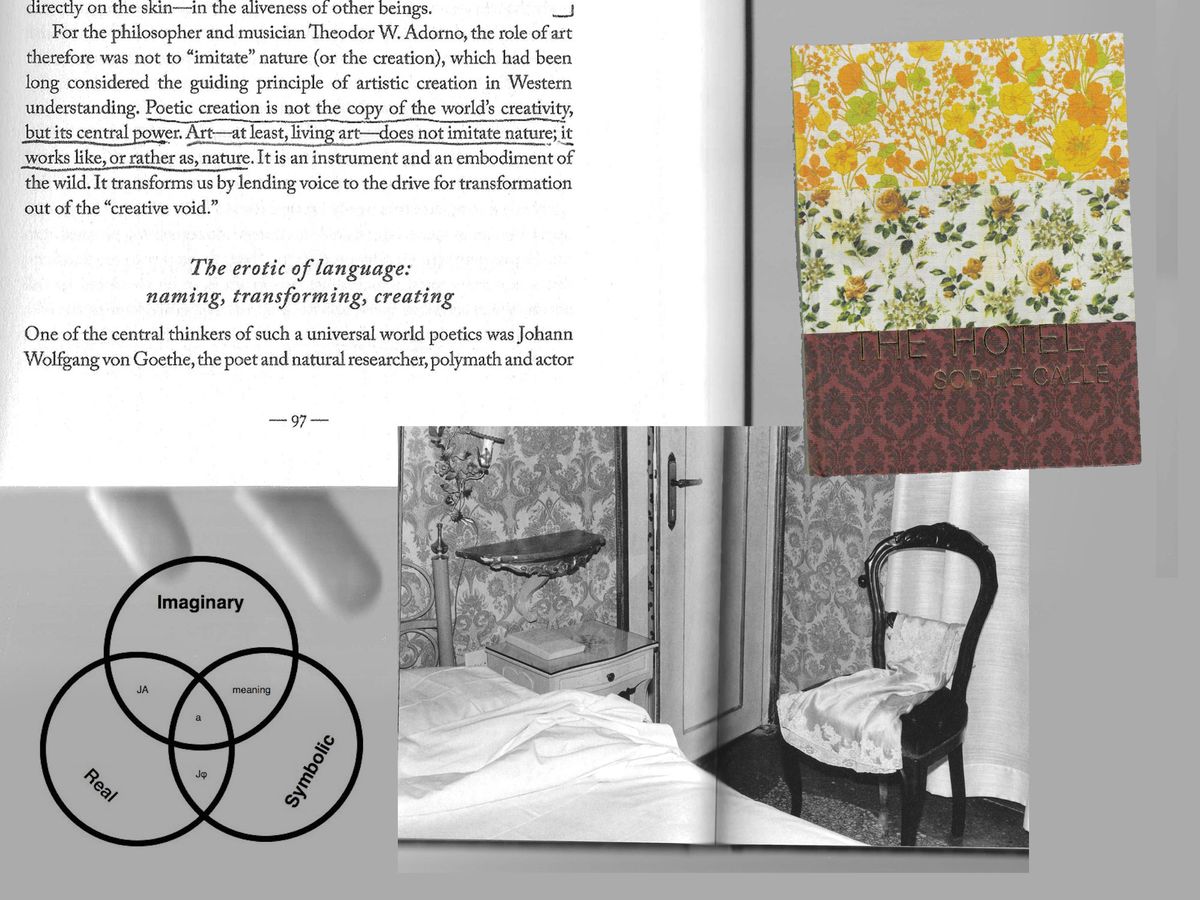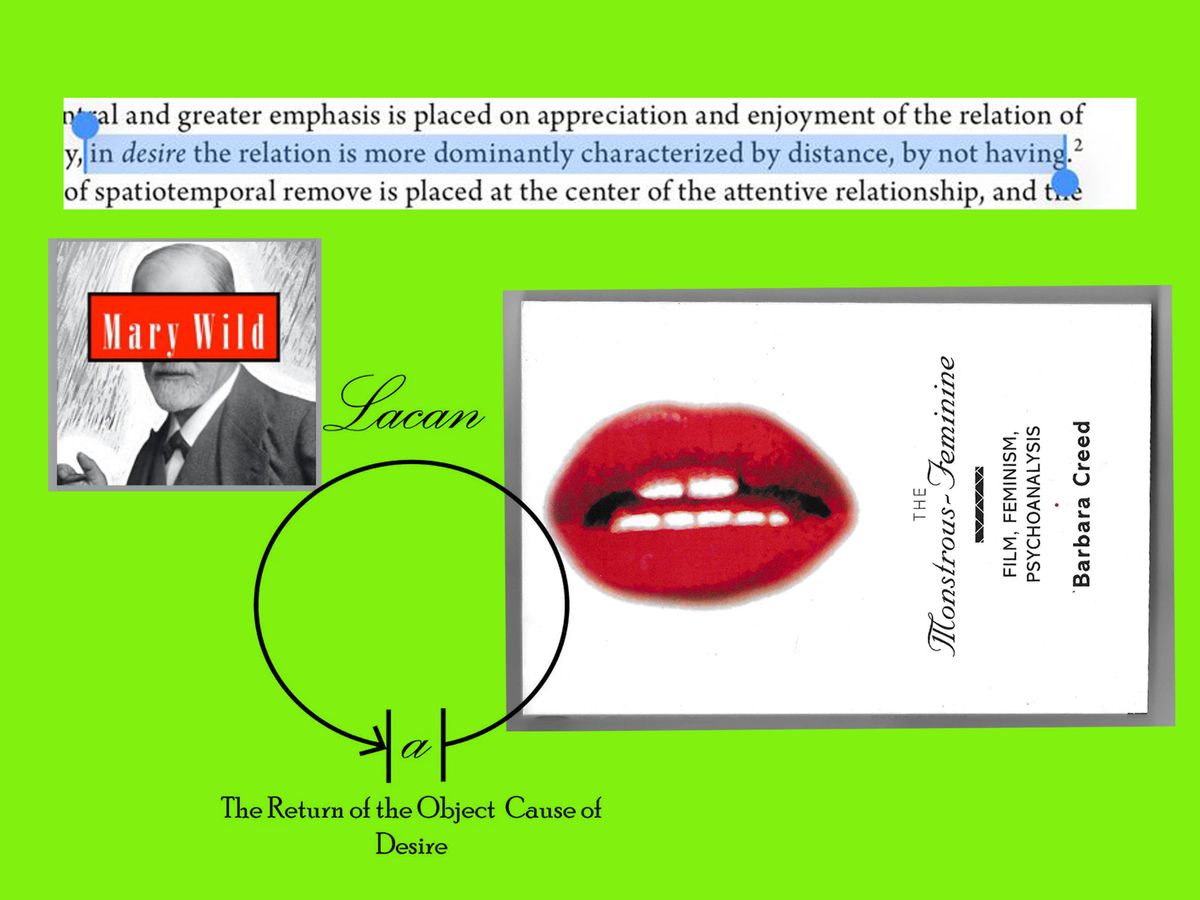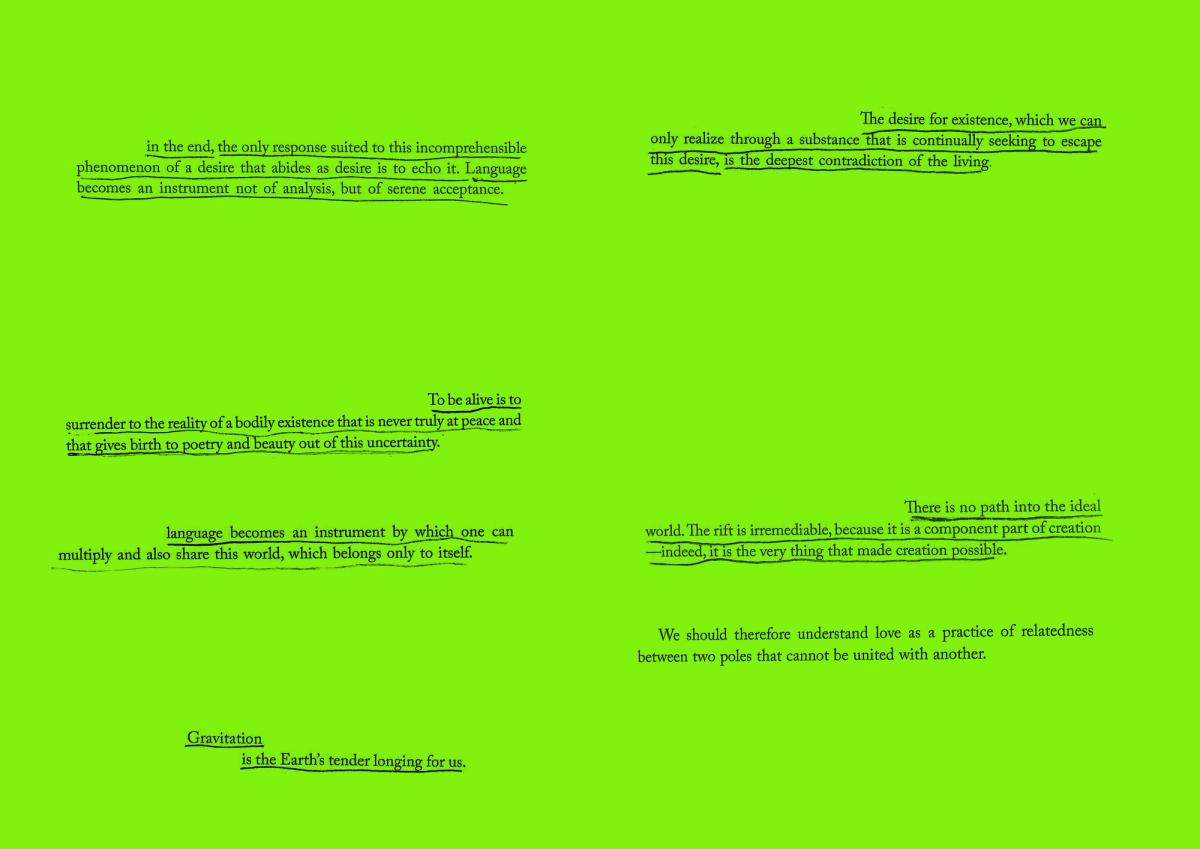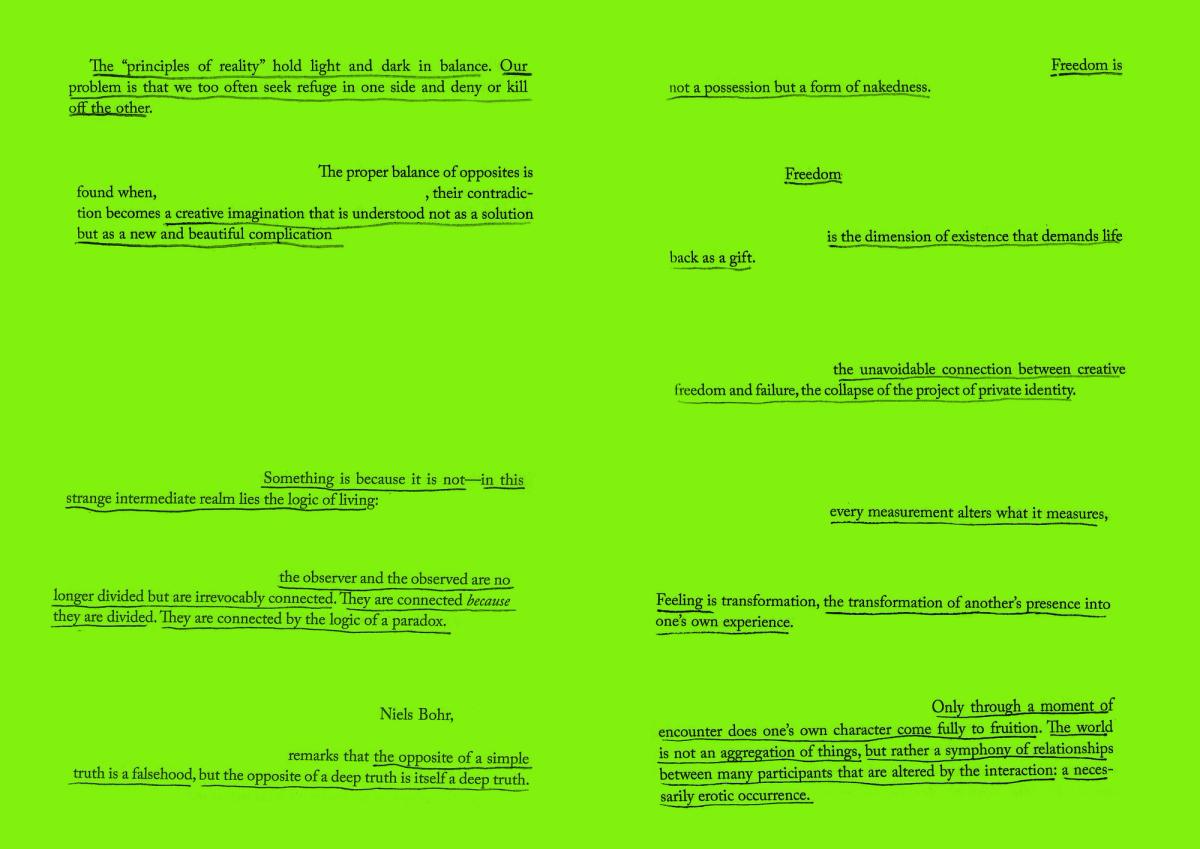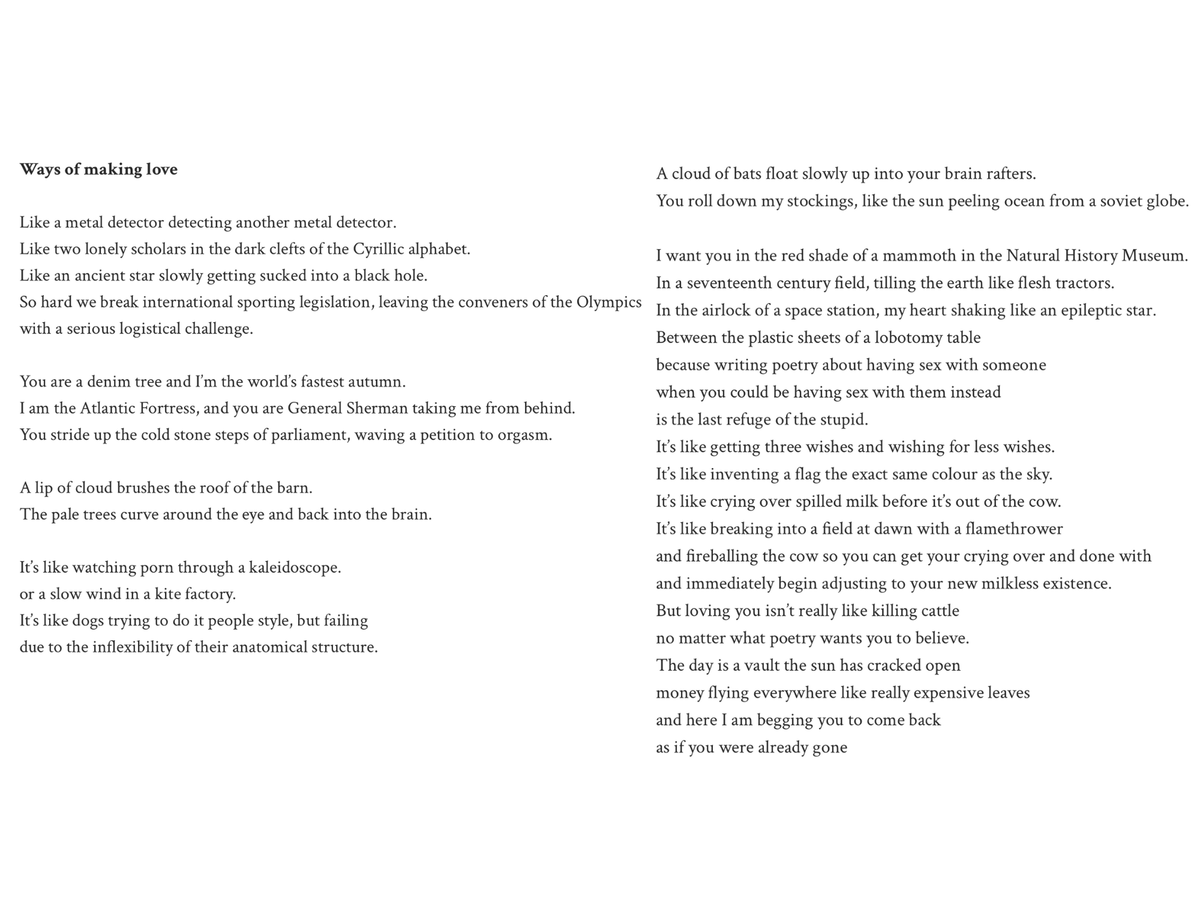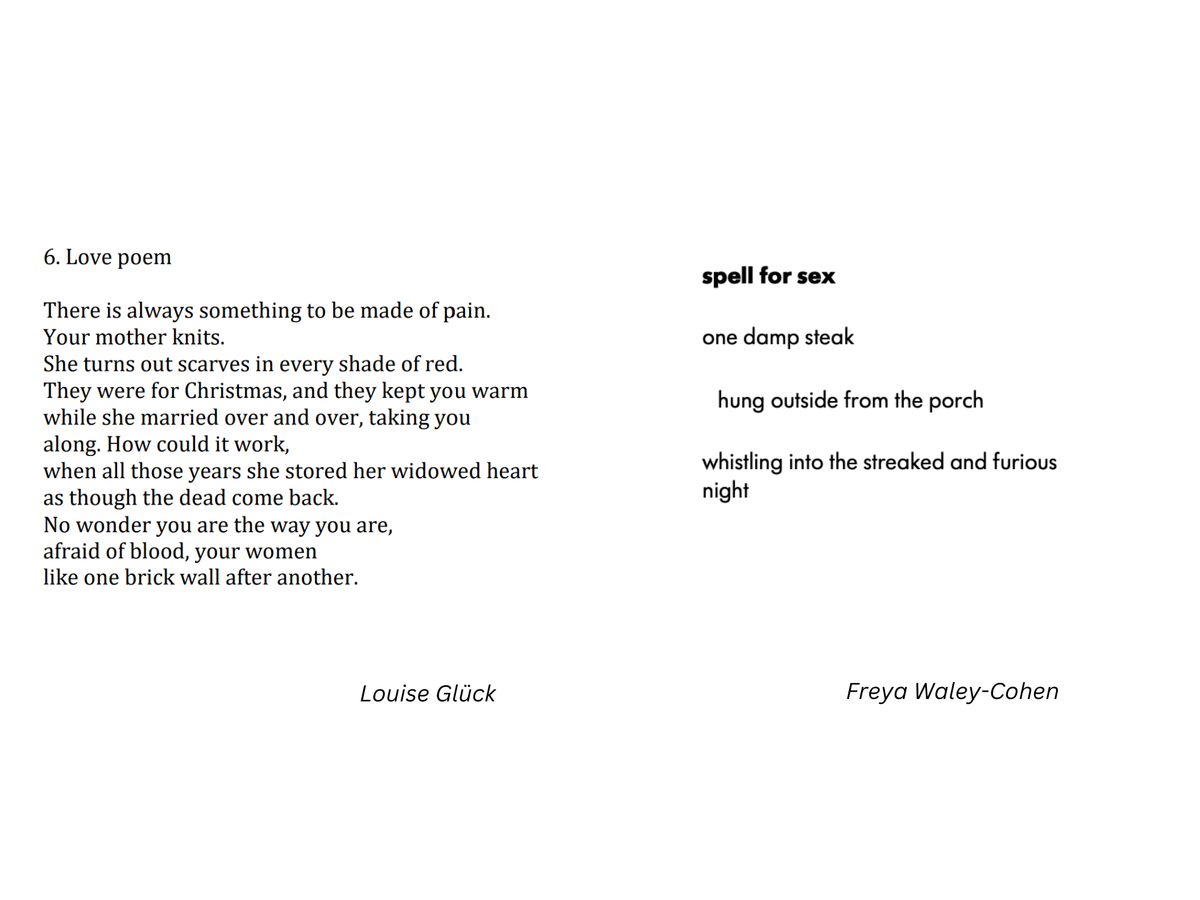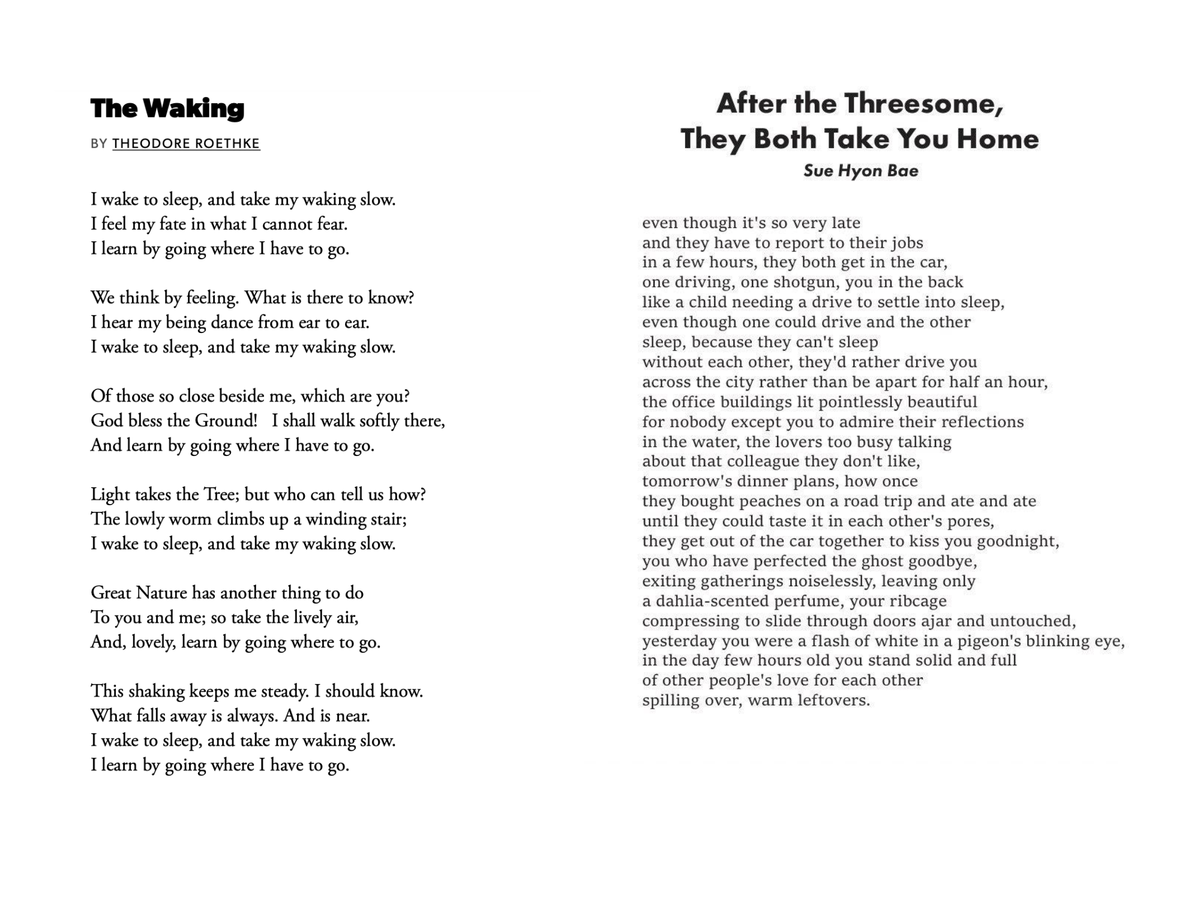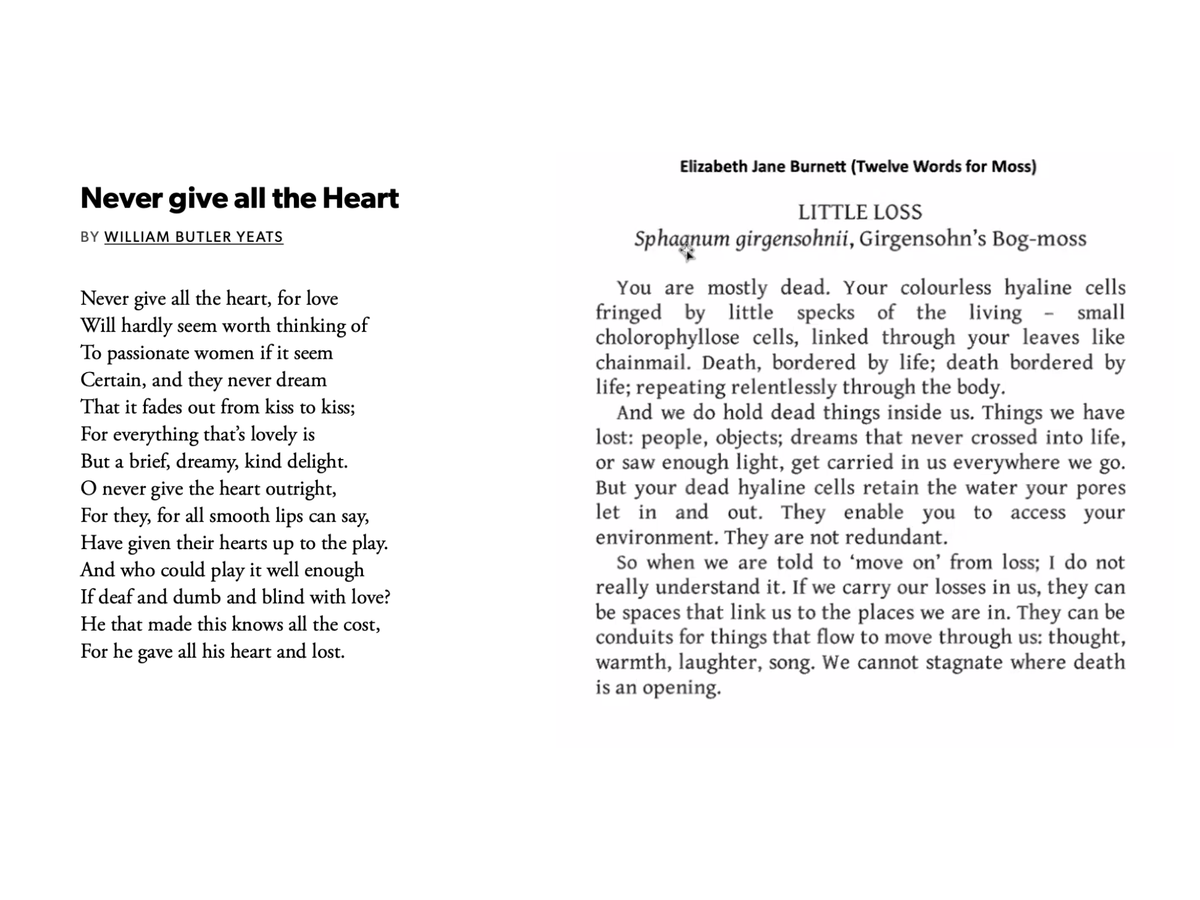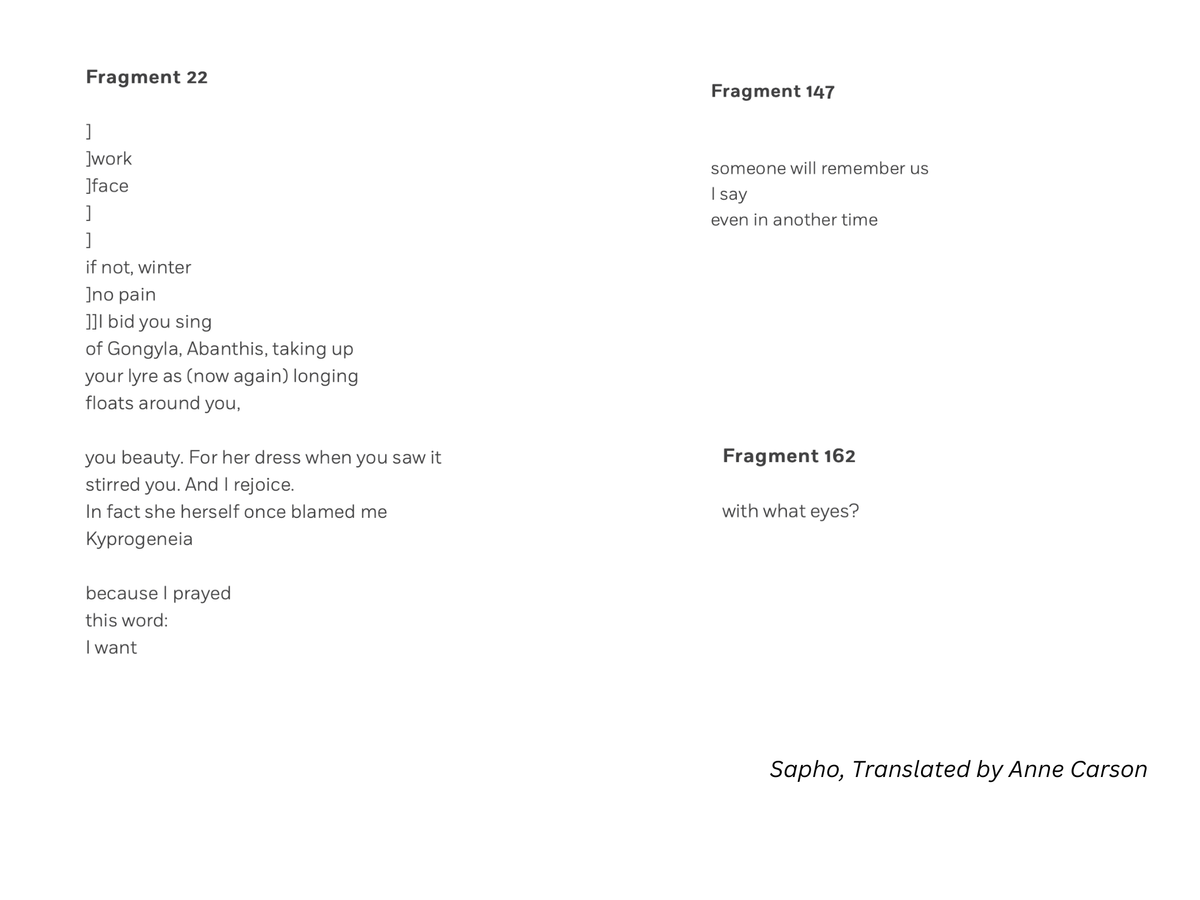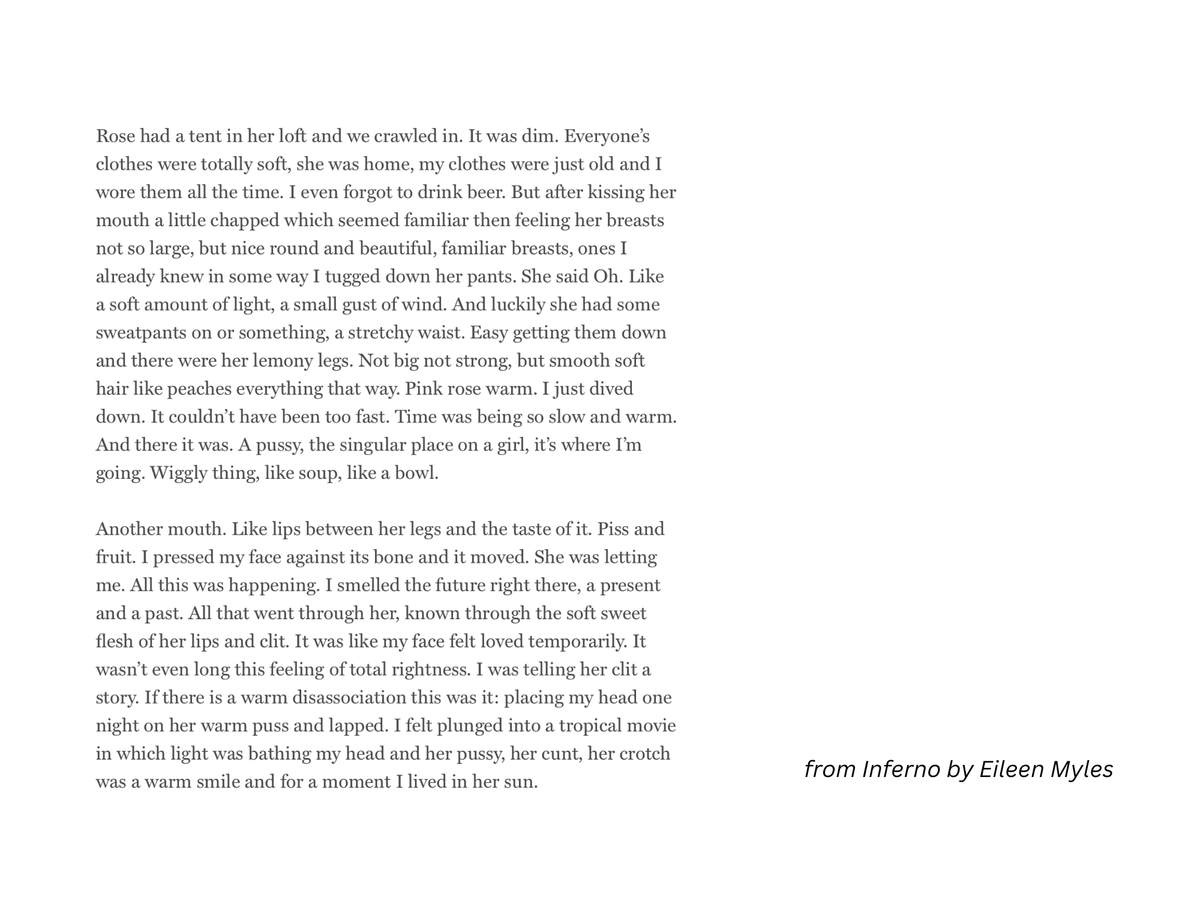Ever since Eve took the apple, the connection between women and desire has been fraught. While we may generally feel, as modern minds, that we inhabit a post-industrial, post-religious Western world, we are, in fact, living squarely in its aftermath. Our social infrastructure, both physical and non-visible, still stands to hold up ideas of the past.
A woman split away from her desire is a woman separated from her body, but we all share this aftermath no matter our gender and are all heirs to its negative impact.
Even the person who thinks they don't care about the philosophy of desire has doctrines and guiding principles they practise. Lack of conscious consideration of one's own desire only creates a vacancy for another's desire. What I mean is that if a person (especially a woman) does not reclaim their own desire, it will be claimed by a larger desiring body, making them a prop for another will —be that capitalism, the patriarchal perspectives or the limitations of your familial and cultural frameworks.
To desire in our culture is to be caught in the rip-tide of our own wanting and the cross-current of guilt. We are collectively confused and consumed by mixed messages, which result in misguided attempts at relief and fulfilment. Most of which occurs without deeper inquiry. We hardly, or never, turn back to analyse the very phenomena that propels us.
After many years throttling the extremes of nihilism, asceticism, and devote consumerism, I've ended up with an evolving set of theories and practices in regards to desire—experiments facilitated through writing, a meditation practice, reading philosophy and psychoanalysis, and through varying degrees of failure at fulfilment. This incomplete auto-theoretic foray will draw from a few sources, which I have shared in the footnotes below1. But mostly, this is guided by what Goethe terms the tender empiricism - of my own sensate body negotiating degrees of pain and pleasure.
1. The Maintenance of Longing
In Desire and Matter, an Erotic Ecology, Andreas Weber establishes the terms eros, or desire (used synonymously), as the foundational driving force of all living matter. For Weber, it is desire that motivates creation. All of life pushing, reaching forward to expand—be it a virus, a beanstalk, or a human-driven to love. The erotic is the genuine principle of life that permeates the world of bodies and life forms.2
Weber does away with the longstanding Darwinian conception of the natural world as “survival of the fittest”, and replaces it with an understanding of ecological reality as a complex relational system. This ecological reality contains seemingly conflicting ends; matter that is propelled by desire towards the impossibility of fulfilment, the death contained in all life, the surplus and destruction that abound in nature. Making the core of our reality, the core of matter, a paradox in physical terms. However, life does not wish to resolve this paradox, it transforms… lack into an excess that produces new contradictions.3
The way that we characterise or understand these foundations of matter, have a drastic influence on the way we behave as matter. If we can entertain the idea that the foundational forces of life are incongruent and that they actually require the tension of opposites to create more life, what happens to our need for control and resolution? How do we direct the allotment of our own personal desire—that is, our own force—into creating new complications? If we can seek to maintain our longing, instead of seeking relief from it, we have a very different projects at hand.
In the essay Forms of Desire in Poetic Attention by Lucy Alford, she relays, “in desire, the relation is more dominantly characterised by distance, by not having.4” For both of these writers, the phenomena of desire is in the reaching, the longing; it is a lack-of and not an attaining-of. The felt experience of desire is the embodiment of that longing. The discomfort generated by longing propels an individual to act, to create.
“Both love and desire require an interval of distance and difference between subject and object, but in desire, the interval is widened, more tensely felt, sharpened by frustration”.
We move towards what Mary Wild calls 'The limits of satisfaction and the yearning for the impossible5' in her podcast in which she explores Jacques Lacan’s Objet Petit a. She expounds further to say:
“because achievement of this aim is impossible we substitute fantasies; sexual, romantic, narcissistic or material accomplishment… and we convince ourselves that we will be satisfied in realising them.”
2. The Gravity of Longing
If eros at its core is a drive to live, to expand, to reach. It is through that drive that we encounter — we touch. And it is through encountering others, that we simultaneously define our own edges, we individuate in relationship, which is in itself a beautiful paradox.
Not only are we defined by our encounters with others, the world is affected by the way we encounter it. In physics, this is referred to as The Observer Effect, in Buddhist Philosophy it is called Dependent Origination. The quality of our touch (which is another way of saying our attention) shapes the world and ourselves concurrently.
Let’s expand on touch as a form of attention. We reach towards, not just with our fingers, but our eyes, our hearts, and our minds. And we are touched not just by hands, but by all we encounter through all of our senses: the wind, emotional currents of pain and pleasure, and words on a page – In the West we learn we have five physical senses, but in the East, it is seen to be six, including the mind as a sensual organ. So even the way we think can be a way of touching the world. And to expand our definition of touch is to expand the space for desire to exist and function.
One of the most moving passages from Weber’s chapter on touch is an observation of a river, and how the elements of stone and water encounter each other and in so doing are transformed. By coming into contact with the water, the stone’s form softens, and through that softening, it begins to show characteristics that are in fundamental opposition to itself. It struck me as so beautiful, how willing nature is to bend its form and respond to its environment - how selfless that is.
All of life on this planet is initiated or enabled by the light revived from the sun – light being another form of touch that reaches across space to feel the earth's surface. It is our exact proximity to ultraviolet light (and the possession of carbon) that predisposes life. It is not an abstraction; a thunderous or benevolent god, but simply light which photosynthesizes on the open palm of a leaf and makes this planet edible and habitable. "The plant translates the world into body and thereby reveals further dimensions of the world that had been previously invisible".
If we can see all of life as the embodied yearning towards touch, and we can widen that sense beyond the personal to societal and to the natural world, we can experience in Weber's words Gravitation as the Earth’s tender longing for us6. Through this lens we come back into relationality with the world, we loosen the projects of personal satisfaction, personal desire, pain and even love to be broader and more robust. "Hadn’t we all become obsessed with an image of love that led us away from aliveness and sucked us down into a spiral of desire in whose middle [is] nothing but our own optimised self". And what a more robust definition of Love Weber offers us:
Love… — not as a kitschy feeling, but as an unbridled force with which creative energy moulds the world into individuals and then destroys them.
Jiddu Krishnamurti says The ability to observe without evaluating is the highest form of intelligence. Can we go a step further and call that brand of intelligence love? Because, from the acceptance of non-unity and the consent to complexity and the suffering it bears, Love includes what is ugly and what is difficult, not as encounters that need remedy or resolve, but as inclusions of love itself. Love simply becomes a way of looking at what is difficult without interrupting the process of transformation. Love is the answer to the lack that lies at the heart of aliveness, but does not compensate for that lack — it transforms it. 7
Perhaps we too soon reach away from, and not hold onto, our own eros (which is our own discomfort), and in so doing we fail to let our internal world be transformed by the encounter of our own force. Worse still we spend that force outwardly in ways that have been predicted on our behalf, reap little reward, or actually increase our deficit. Or on the other end of the spectrum we collapse into self-pity and apathy. Not even fully inhabiting our own desire before it is thrown away. throttling the extremes between self-abandonment and self-gratification. Both shots are fired in the direction of aliveness and both not only miss but diminish the electrical bandwidth available to the human body. A body experienced as the individual expression of universal desire. And paradoxically in order to become more alive, we must die over and over.8
3. The Little Death
By definition, the act of sex, or any desire enacted, is the quelling or the annihilation of the eros. There is a reason that in French an orgasm is referred to as La Petite Mort, the little death. Consummation is the death of desire and an important one. Desire can be consummated in many ways; it is the point of purchase, the midnight text, teeth sinking through a chocolate bar. It is the release of the build-up created by longing, one we all seek and very much need9.*
While there is no end to the build-up of desire, or any one act will not stop desire from again rising in the body, there are varying degrees of fulfilment available when it comes to consummating that desire. One of my teachers who focuses on Eros Dharma, has a simple exercise of asking oneself what the reward will be when you attain the “object a” (If I get X, I will get to feel X). It doesn't take many rounds of this practice to get closer to the source of desire. This could be the point at which one decides to not act upon the desire, or it could be the place where we clarify the innermost part of our wanting and act on something more essential and unique to us. Because while wanting grows and accumulates in all bodies in the same way, it moves towards different ends, it is infinitely complex and varied as the forms it inhabits. 10
This is how desire draws a line and so connects the inner and outer world, creating a loop from the universal emergence of matter, to an individualised expression, and back into the universal meaning of symbols. Confirming the common adage, what is most personal is most universal.
This all sounds like a nice clean little graph, but the rubber hits the road when we have to face off with the motivating forces behind most of our habitual desires and grasping. Most of the time, we are motivated by a few core desires, and it is easy to go on acting on their behalf in more and more abstract ways, without ever actually tending to them directly. Facing off with our core motivating desires requires a capacity for grief. It means reckoning with the part of ourselves that didn't get their needs met at one point in time, and at that time, decided on a strategy - an abstract path of gratification instead of feeling the primary pain.
4. Unity Delusion
We have a culture that promises to deliver us from our own eros, through various ends. One of the most culturally condoned ways we have been conditioned to believe in deliverance is through romantic love. We have killed all of the gods except for Aphrodite and placed unfathomable pressure on ourselves and our partners to be “the one”. Which is essentially the deification of a human beyond what they are capable of. One of the most toxic myths in our culture is the Greek myth of soulmates. The world was once occupied by “complete” human beings with 4 legs, 4 arms and two heads, who were perfectly happy. Zeus cut them all in half and they were doomed to walk the earth looking for completeness in another person - their other half.
Every time I hear this story it angers me, it’s a poetic tale I admit, but it completely discounts the various ways that people become more whole, which mostly, in my experience, happen outside of the strict romantic conditions this demands - be it alone in the dark, or in the light of the blank page, amongst old friends or strangers. The belief in unity acquired through another creates a lack of individual autonomy, and or delusions of grandeur.
Perhaps one of the most dangerous aspects of unity delusion is the objectification of the other. Which is to flatten a person into a tool, a key that suits the size and contour of your own desire, unlocking a body from its discomfort. In other words, if we believe in the possibility of being completed or even just fulfilled, we start looking over our shoulders for a means to that end.
We can look to porn to see this played out most crudely. Susan Sontag says Pornography is a theatre of types, never of individuals. Types can also be seen as objects, objects like jack hammers, or candy jars which are involved in a kind of mutual extraction.
I will defend every person's right to be objectified - if, when and how they choose to be. However, there must be at the heart of the objectified act, an awareness of the stage. The individual's role is both director and actor. If there is no awareness of the stage, the act is being directed by the unseen forces/intentions/desires of another. From the perspective of unity delusion an individual can only optimise themselves, become a more perfected social object, in order to ascertain a desirable counter-object that will function to fill in their lack.11
***
Counterintuitively, the result of consenting to being in perpetual uncertainty without grasping towards unity, is not disillusionment. Disillusionment is more likely to occur when the failed attempts at unity pile up. The belief in the possibility of unity is unaccepting of failure. When we fall at the feet of unfathomable uncertainty, the unrequited embodiment of desire, the paradox at the core of reality, the bodily response is something akin to awe.
In the end, the only response to this incomprehensible phenomenon of a desire that abides as desire is to echo it. Language becomes an instrument not of analysis, but of serene acceptance.
- Bianca Pina
Desire & Matter, An Erotic Ecology by Andreas Webber.
Susan Sontag’s The Pornographic Imagination,
Forms of Desire in Poetic Attention by Lucy Alford.
Simple Passion by Annie Ernaux,
TheUses of the Erotic by Audry Lorde.
Desire & Matter An Erotic Ecology - Andreas Weber (pg.5)
Desire & Matter An Erotic Ecology - Andreas Weber
cForms of Desire in Poeti Attention - Lucy Alford
Mary Wild on Patreon. Ep. 111 Object Petit a
Andreas Weber
Desire & Matter An Erotic Ecology - Andreas Weber
Desire & Matter An Erotic Ecology - Andreas Weber (pg.5)
However we have been socially conditioned to see this cycle from a phallocentric perspective. (stock market goes up, stock market goes down) when really, for women, and much of life, the cycle of built up pleasure and release can be multi-directional, cybernetic, multi-orgasmic. I often wonder how this more complex geometry would take form in the world.
This perspective of exponential complexity, completely snuffs the project of an ideal look, a beauty “standard” for example.
enter lazy type-matching apps like co-star, who profit off the idea that there are some people that are made to fit us.

